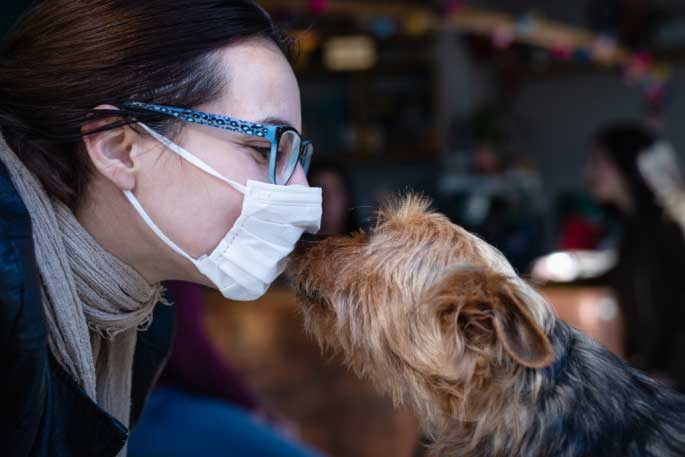
Feeling the lockdown blues? For our pets, having their loving pet-parents at home is pure joy. But how can we ensure they are kept at their optimum health during these times?
It’s not uncommon to hear how many of us have added a little extra weight over the past year. Lockdown has seen many of us indulge in baking, lots of television, and snacks and treats. This can also be true of our loving pets. Obesity is one of the biggest issues facing our companion animals, and as we overindulge, many of our pets are also following this trend during the lockdown.
The key is moderation and ensuring any treats you are offering your pet are taken out of their daily food intake. If you are feeding a complete diet in the form of biscuits or wet food, always follow the manufactures feeding guidelines and adjust accordingly by taking into account the extra titbits.
How to Beat the Bulge
- Resist feeding your dog human foods. Even the odd chip or leftovers can push their calorie intake up and cause weight gain.
- Prepare a jar with the maximum daily number of treats and ensure the whole household follows the feeding rules.
- Get creative with your pet’s daily food intake. This could mean using a portion in puzzle balls or Kongs.
- Petfoodsherpa.com advises making your pet work for their food. Ideas include; sprinkling a few handfuls over the lawn or soaking a portion, filling a Kong, freezing, and slapping it shut with xylitol-free peanut-butter. This will keep your pet entertained and make them work for their food.
Exercise, Exercise, Exercise
Many dogs are pounding the pavement since lockdown restrictions were introduced. As their owners desperately seek some fresh air and outdoor activities, some dogs are taking more daily walks than ever before. It’s important to remember that overexercising your dog is not a good idea. For dogs that are not accustomed to an intensive walking regime, it could lead to joint issues and stiffness. It’s important to slowly build up your walking regime. Young puppies and older dogs should be limited to short walks twice per day.
Change up Your Walking Routine
- Change it up. Remember that your dog will get bored walking the same route every day. Even reversing your walk can help keep your dog enthusiastic about their exercise.
- Go at your dog’s pace, let them stop and sniff the lampposts and explore.
- If you are walking more than once per day, have a fast pace walk (for you) and a slower exploring walk (for your pet).
- If your pet is showing any symptoms of stiffness or joint issues, seek veterinary advice and take a day or two off.
- Don’t forget your cat. A good play session daily can boost their health and wellbeing. Invest in a good feather wand and encourage your cat to play daily.
Life after Lockdown
As our pets relish in all the extra attention, walks, and snuggles, it’s important to remember that some pets may exhibit some unwanted behaviors when this all comes to an end. Separation anxiety can be a big problem for many dogs, as too boredom. It’s vital to remember that your pet feels safe while you are at home and is highly entertained. When you do return to your regular schedule, it can leave your pet feeling lonely and bored. A bored dog can become a destructive dog. Tearing up a cushion, making your bedroom their new hangout, or ripping apart the kitchen bin is highly entertaining for any canine companion.
Dogs are masters at creating their entertainment. Chewing, digging and barking can be common symptoms of boredom. Ensuring your pet is slowly reintroduced to extended time spent alone can help ease your pet into this transition alongside some great boredom-busting toys. Simply rotating your toys is a great way to get your dog excited about playing on their own. Having a collection of ‘home alone’ toys that you pick up when you return can keep your dog interested in their toys and also help ward off boredom.
Final Thoughts
When you leave for the day, give your dog a job to do. It will keep them entertained while you are away and help protect your shoes, pillows, and bins. If you have not left your pet alone since lockdowns were introduced, start by leaving your pet for a few minutes each day and slowly increase the time you are away. You need to re-teach your pet that it’s OK to be on their own and that you will always return home. If you notice your pet showing symptoms of separation anxiety, it’s advised to seek veterinary advice.



